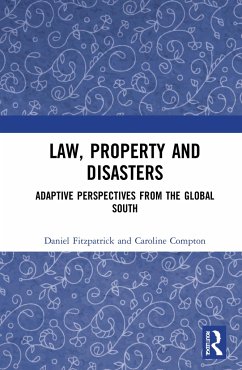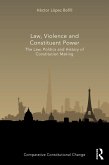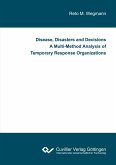This book re-considers property law for a future of environmental disruption. As slogans such as "build the wall" or "stop the boats" affect public policy, there are counter-questions as to whether positivist or statist notions of property are fit for purpose in a time of human mobility and environmental disruption. State-centric property laws construct legal fictions of sovereign control over land, notwithstanding the persistent reality of informal settlements in many parts of the Global South. In a world affected by catastrophic disasters, this book develops a vision of adaptive governance for property in land based on a critical re-assessment of state-centric property law. This book will appeal to a broad readership with interests in legal theory, property law, adaptive governance, international development, refugee studies, postcolonial studies, and natural disasters.
Hinweis: Dieser Artikel kann nur an eine deutsche Lieferadresse ausgeliefert werden.
Hinweis: Dieser Artikel kann nur an eine deutsche Lieferadresse ausgeliefert werden.








